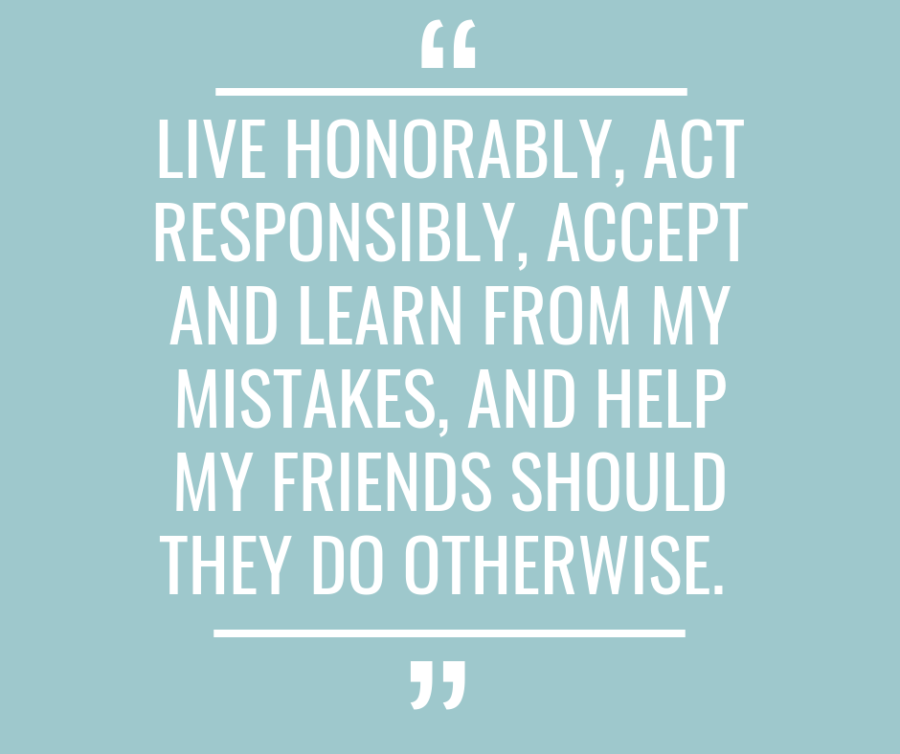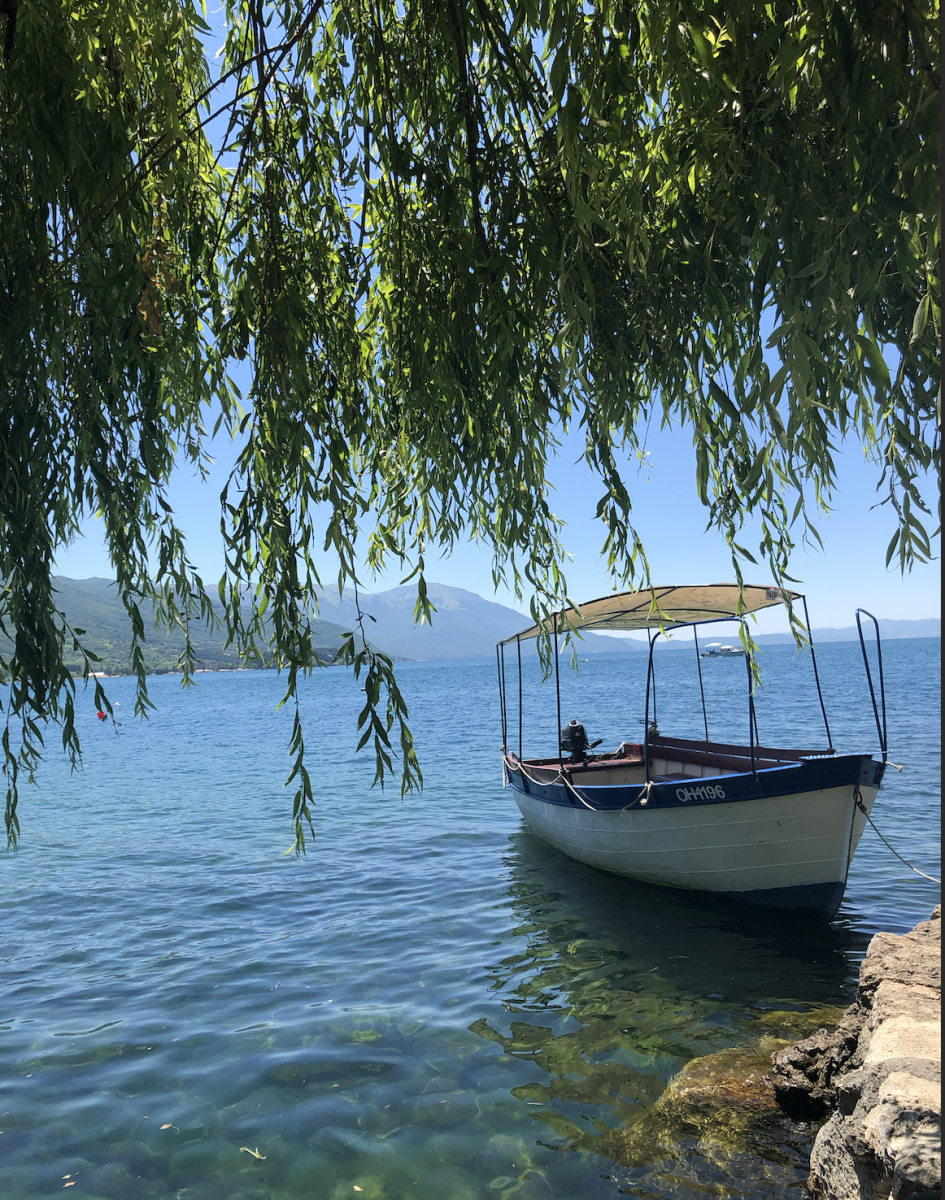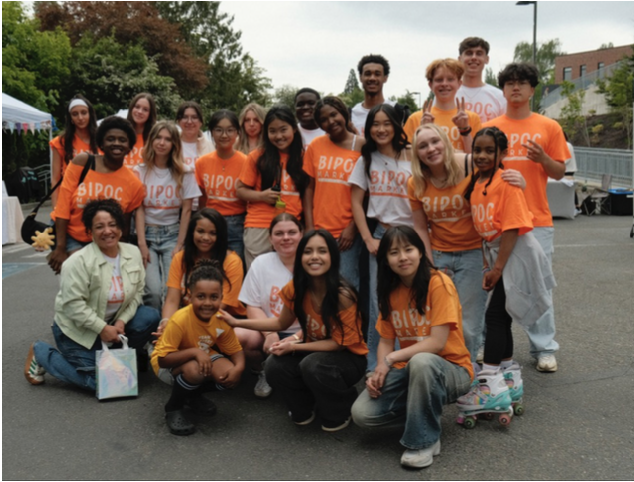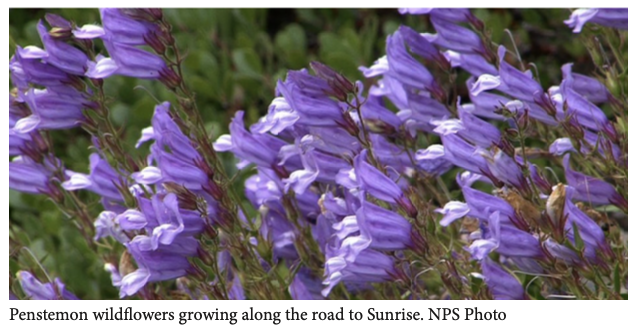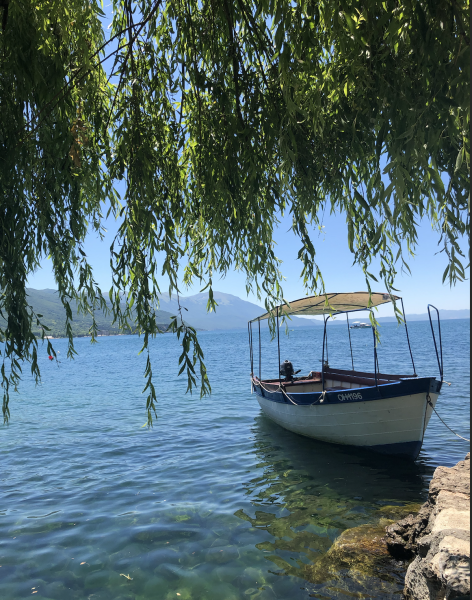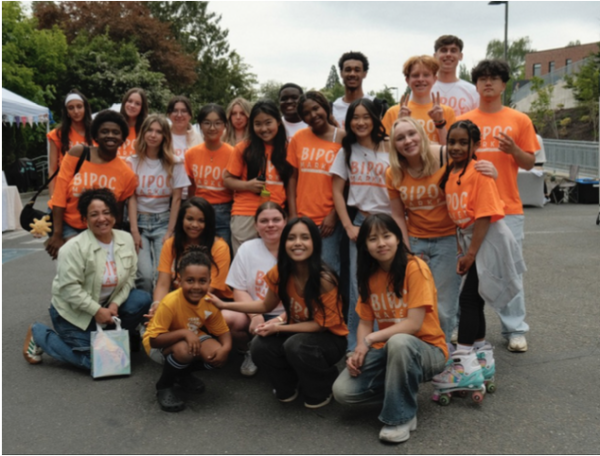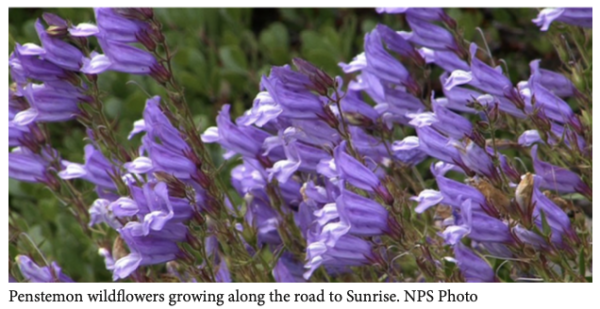The Honor Council and Code unpacked
October 11, 2018
During orientation last September, the Honor Council spoke to the Upper School for Girls about their role for the first time in several years. Their goals in presenting were to increase the transparency of the Honor Council system and amplify the presence of the Honor Code.
For years Honor Council has served as a group of students elected by their peers to address student infractions. Annie Green, the Dean of Students, and Jake Guadnola, Director of the USG have also started presenting reports at Wednesday chapel on the type and number of infractions that have occurred in a given quarter.
The Honor Council and Code play significant roles in the current USG community, but Guadnola recalls a time when their roles were less clearly defined, “When I first came to Annie Wright, I heard talk of an honor code,” he said. “What I began to realize was that there was this interesting little statement that students would write before their final exams that basically said ‘I neither gave nor received any help on this final,’ and it was kind of considered the honor code.”
Once Guadnola became the Assistant Director of the Upper School, he worked with Susan Bauska, the Director of the Upper School at the time, to create, as Guadnola envisioned it, “Some kind of guiding statement, some sort of code that we could truly work to live by as a school.”
In the early 2000s, Guadnola and Bauska worked through many ideas, but ultimately settled on a few main parts they wanted to include. “We knew we wanted it to be short and succinct and we wanted it to be all things that you should aspire for,” Guadnola continued. “So when we started to unpack for ourselves what honor was about, we really ended up with those four things being fundamental. You should live with honor; you should live with responsibility. We acknowledge that mistakes will be made and that when they are the important thing is that we accept and learn from them. Then we felt that it was really important as a community, because the subject of our Annie Wright mission statement is its strong community, that we help our friends. We intentionally chose that word friends.”
Guadnola has observed the emphasis of the Honor Code rise and fall. “The Honor Code prevalence within the school has come and gone,” he said. “Some years it feels very much a part of the fabric of the school, and then sometimes it is like you go through years where you just don’t have that many issues. There were times when every morning meeting we would recite it. We would point at people randomly and they would have to recite it. We did surveys for a few years and we found 99% of the kids valued the Honor Code and felt that their peers did too.”
The Honor Council, on the other hand, has a long history at Annie Wright and has served a variety of roles throughout its history, but a more recent change that Guadnola made as Assistant Director was creating a dorm side and a day side of the Honor Board.
According to Green, the advisor for the Honor Council, this group is currently discussing how to create “more of a preventative rapport” and to “imagine ways to build and amplify the presence of the Honor Code within the student body.” The Council tackles these goals during regular meetings on Mondays during tutorial. Ideas include a visual representation of the Honor Code and friendly reminders at morning meetings and chapels.
In response to infractions of the Honor Code, the Honor Council makes suggestions to Green for what disciplinary actions should take place. According to Green, “Those recommendations are always considered and usually, almost always, implemented.”
While the Honor Council receives student infractions such as plagiarism, there are other instances that will bypass the Council and go straight to administration, which according to Green, “Are usually cases that result in an immediate suspension or expulsion. These are cases where maybe the person involved put either self or community at risk in a way that requires an immediate intervention in response from the school…or in some cases we felt that the infraction was sensitive enough or needing to remain confidential even beyond the scope of the Honor Board’s commitment to maintain that confidentiality. Such infractions may include but are not necessarily limited to the presence of drugs at a school event or on the school campus, presence of weapons or intent to use on school campus, and sexual misconduct at campus or at a school event.”
While the Honor Council has input on what restorative actions are prescribed to student infractions, they do not control which of their recommendations are implemented and which student infractions Green shows to them.
Seniors April Fraser, Rhiannon Simmonds, and Katye Mayora and Juniors Kayla Mathurin and Abby Givens currently serve on the Honor Council, which meets Mondays during tutorial to discuss projects to amplify presence of the Code and Honor Council system, as well as any infractions that have occurred.


